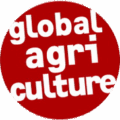
As climate negotiations are gaining momentum ahead of the UN climate conference COP21 in December, civil society organisations have voiced deep concerns about the growing influence of a concept called “Climate-Smart Agriculture” (CSA) and urged decision-makers to support agroecology instead. In a joint statement published on Monday, a coalition of 355 civil society groups, social movements, farmers’ and faith-based organisations from around the world warned that CSA is falling short of ensuring food and nutrition security, undermining the radical transformation of current food and agricultural systems that is urgently needed. The Global Alliance for Climate Smart Agriculture (GACSA) was launched one year ago with the aim of “addressing the challenges facing food security and agriculture under a changing climate” and “scaling up the climate smart agriculture approach”. As of 18th September, among its members were only ten developing countries and three farmers’ organisations, whereas 60% of the private sector membership of the alliance is related to the fertiliser industry, for example Yara International or Fertilizers Europe. Transnational corporations with poor environmental or social records such as Monsanto, Walmart and McDonalds have launched their own “climate-smart agriculture” programs. According to the civil society coalition, CSA is a meaningless and dangerous concept without any clear definitions, criteria or standards, thus opening the doors for greenwashing. Agribusiness corporations that promote synthetic fertilisers, industrial meat production and large-scale industrial agriculture, all of which are recognised as contributing to climate change, can call themselves climate-smart. With new instruments for international climate finance being put in place to spend billions of dollars, the coaltion fears that projects and programmes will be funded that direct resources towards false solutions. The organisations therefore urge decision-makers at national and UN levels to reject CSA and endorse agroecology as the mainstream pillar of agricultural policy frameworks worldwide. Agroecology is a holistic approach to agriculture, based on principles of ecology as well as food and nutrition security, food sovereignty and food justice which seek to enhance agricultural systems by using and recycling natural resources instead of relying on external inputs. In addition, the coalition highlight that agroecology encourages local food production by small food producers and family farmers, and is based on techniques that are developed from farmers’ traditional knowledge and practices which improve biodiversity and crop diversity. (ab)
